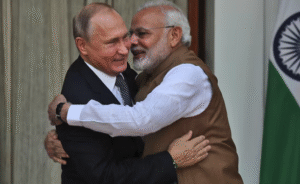Washington, D.C. — U.S. President Donald Trump has vowed to keep tariffs on foreign imports in place, despite a federal appeals court ruling that many of them are illegal. Trump warned that removing the tariffs would severely damage the U.S. economy, weaken national strength, and undo the progress made under his administration’s trade policies.
In a strongly worded post on his Truth Social platform, Trump said, “ALL TARIFFS ARE STILL IN EFFECT! Today a highly partisan Appeals Court incorrectly said that our tariffs should be removed, but they know the United States of America will win in the end.” He added that eliminating the tariffs would “make us financially weak” and be a “total disaster for the country.”
Court Rules Trump-Era Tariffs Unlawful
The court decision, which declared several of Trump’s global tariffs unlawful, has sparked renewed legal and political debate around U.S. trade practices. The ruling, however, allows the tariffs to remain in effect for now, giving the Trump administration time to appeal to the Supreme Court.
In response, Trump reiterated his belief that tariffs are essential tools for protecting American industries. “For many years, tariffs were used against us by uncaring and unwise politicians,” Trump said. “Now, with help from the Supreme Court, we will use them to benefit our nation and make America rich, strong, and powerful again.”
Trump Admin Cites National Security, Trade Deficits
Ahead of the court ruling, top Trump administration officials filed a supplementary brief arguing that invalidating the tariffs would undermine U.S. foreign policy and national security. Commerce Secretary Howard Lutnick stated that overturning the tariffs could provoke retaliation from trade partners and disrupt critical negotiations. He also warned that it would threaten broader U.S. strategic interests both at home and abroad.
Trump further criticized trade imbalances, stating, “The U.S.A. will no longer tolerate enormous trade deficits and unfair tariff and non-tariff barriers that hurt our manufacturers, farmers, and workers.”
New Tariff Measures Target India, Brazil
Since returning to office nearly seven months ago, President Trump has restructured U.S. trade policy, imposing steep tariffs of up to 50% on imports from countries like India and Brazil. In April, he introduced a “reciprocal tariff” system: a 50% duty on imports from nations with which the U.S. runs large trade deficits, and a 10% baseline tariff on most other imports.
Trump invoked a 1977 emergency powers law to justify the sweeping tariffs, calling the trade deficit a national emergency. He gave foreign governments 90 days to negotiate better deals—some complied, while others faced stricter penalties.
Looking Ahead: Supreme Court Challenge Likely
Despite the legal setback, Trump remains confident that the Supreme Court will uphold his trade policies. “If this decision is allowed to stand, it would literally destroy the United States of America,” he warned.
The legal battle is expected to escalate in the coming months, potentially shaping the future of U.S. trade policy for years to come.










